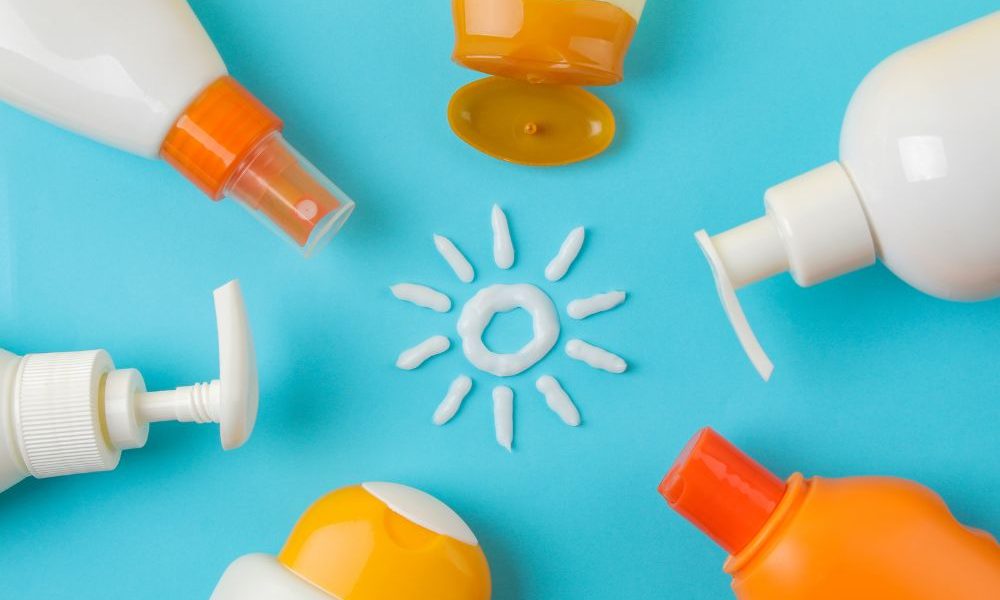Sunscreen is not just for beach days. It’s an everyday essential that protects your skin from the sun’s harmful rays. Whether it’s sunny or cloudy, your skin is exposed to UV rays that can cause damage. In this article, we’ll explore the best sunscreens for daily use and why they are so important.
Why Sunscreen Matters
Protecting Your Skin
Sunscreen acts like an invisible shield, protecting your skin from the sun’s damaging rays. Dr. Elizabeth K. Hale, a dermatologist and President of the Skin Cancer Foundation, says, “Sunscreen shouldn’t be a seasonal thing – it’s an everyday essential. Think of it as an invisible shield protecting your skin from the sun’s damaging rays, no matter the weather” (Skin Cancer Foundation Website).
Preventing Skin Cancer
Everyday sun exposure can lead to skin cancer. Dr. Vivian Bucay, a board-certified dermatologist, explains, “Many people underestimate the cumulative damage of everyday sun exposure. Even on cloudy days, UVA rays penetrate the clouds and can cause premature aging and skin cancer. Sunscreens with broad-spectrum protection are key to safeguarding your skin” (American Academy of Dermatology Website).
Avoiding Premature Aging
Using sunscreen daily can also help prevent premature aging. The journal Photochemistry and Photobiology published a review article titled “The Effectiveness of Sunscreens in Preventing Skin Cancer and Premature Skin Aging,” which highlights the importance of choosing broad-spectrum sunscreens with adequate sun protection factor (SPF).
What to Look for in a Sunscreen
Broad-Spectrum Protection
Broad-spectrum sunscreens protect against both UVA and UVB rays. UVA rays can cause premature aging, while UVB rays can cause sunburn. Both types of rays can lead to skin cancer.
SPF 30 or Higher
Choose a sunscreen with an SPF of at least 30. This level of protection blocks about 97% of UVB rays. Higher SPFs offer slightly more protection, but no sunscreen can block 100% of UV rays.
Water Resistance
If you plan to swim or sweat, look for a water-resistant sunscreen. This type of sunscreen stays effective for a certain amount of time while you’re in the water or sweating.
Suitable for Your Skin Type
Finding a sunscreen that suits your skin type is crucial. Dr. Melissa Kanchanapoomi Levin, a board-certified dermatologist, advises, “Finding a sunscreen you love is crucial for consistent use. Look for one with a lightweight, non-greasy texture that blends easily into your skin. There are fantastic options available for every skin type and concern” (Entiere Dermatology Website).
Best Sunscreens for Everyday Wear
1. Neutrogena Ultra Sheer Dry-Touch Sunscreen SPF 100
This sunscreen is lightweight and non-greasy, making it perfect for daily use. It offers broad-spectrum protection and is water-resistant for up to 80 minutes.
2. La Roche-Posay Anthelios Melt-in Milk Sunscreen SPF 100
This sunscreen is great for sensitive skin. It provides broad-spectrum protection and is water-resistant for up to 80 minutes. Its melt-in texture makes it easy to apply.
3. EltaMD UV Clear Broad-Spectrum SPF 46
This sunscreen is ideal for acne-prone skin. It contains niacinamide, which helps calm and protect sensitive skin. It offers broad-spectrum protection and is lightweight and non-greasy.
4. CeraVe Hydrating Mineral Sunscreen SPF 30
This mineral sunscreen contains zinc oxide and titanium dioxide, which are gentle on sensitive skin. Dr. Joshua Zeichner, Director of Cosmetic and Clinical Research at Mount Sinai Hospital, recommends mineral sunscreens for everyday use, saying, “For everyday use, a mineral sunscreen with zinc oxide or titanium dioxide is ideal. They offer broad-spectrum protection and are gentler on sensitive skin” (Mount Sinai Hospital Website).
5. Supergoop! Unseen Sunscreen SPF 40
This sunscreen is completely invisible, making it perfect for all skin tones. It offers broad-spectrum protection and is water-resistant for up to 40 minutes. Its unique formula makes it feel like a primer, perfect for wearing under makeup.
How to Apply Sunscreen
Apply Generously
Use enough sunscreen to cover all exposed skin. For most adults, this means about one ounce (a shot glass full) to cover the entire body.
Reapply Often
Reapply sunscreen every two hours, or more often if you’re swimming or sweating. Even water-resistant sunscreens need to be reapplied after getting wet.
Don’t Forget These Areas
Commonly missed areas include the ears, back of the neck, and tops of the feet. Make sure to cover these spots to avoid sunburn.
Personal Anecdotes
I remember a time when I forgot to apply sunscreen on a cloudy day. I thought I didn’t need it because the sun wasn’t out. By the end of the day, my skin was red and painful. That experience taught me the importance of wearing sunscreen every day, no matter the weather.
Another time, I was at a family picnic, and my cousin didn’t apply sunscreen. She ended up with a severe sunburn that ruined her weekend. Since then, she always carries a bottle of sunscreen in her bag.
Conclusion
Sunscreen is an everyday essential that protects your skin from the sun’s harmful rays. It helps prevent skin cancer, premature aging, and sunburn. Choose a broad-spectrum sunscreen with an SPF of at least 30, and make sure it suits your skin type. Apply it generously and reapply often. By making sunscreen a part of your daily routine, you can keep your skin healthy and protected.
Remember, as Dr. Ranella Hirsch, a board-certified dermatologist, says, “Sunscreen isn’t just about preventing sunburn; it’s about protecting your skin’s DNA from damage that can lead to skin cancer. Make it a habit to apply sunscreen daily, even on overcast days” (Ranella Hirsch Dermatology Website).
So, find a sunscreen you love and make it a part of your daily routine. Your skin will thank you!
References
- Skin Cancer Foundation Website
- American Academy of Dermatology Website
- Entiere Dermatology Website
- Ranella Hirsch Dermatology Website
- Mount Sinai Hospital Website
- Journal of the American Academy of Dermatology
- Photochemistry and Photobiology Journal

